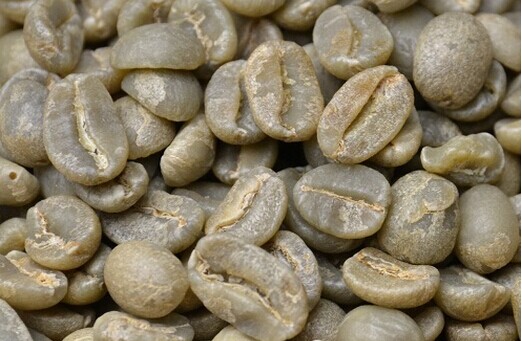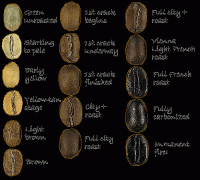Boutique coffee roasting Red bourbon of Musasha Cooperative, Rwanda

[product name]: red bourbon of Musasha Cooperative, Rwanda
[producing area]: Rushashi
[variety]: red bourbon
[treatment]: traditional washing
[producer]: Musasha Cooperative
Many friends know that Rushashi is located in the northern part of Rwanda, and the Musasha Cooperative, which is famous for its success in cup testing competitions in previous years, is one of the best-known cooperatives in this region. The Musasha Cooperative was established in 2002 and has continued to produce high-quality washed Rwandan coffee beans since the authorities funded the establishment of the first washing treatment station in 2003.
The international authoritative coffee rating website Coffee Review gives a high score of 92.
Coffee in Rwanda, like many African countries, is mainly produced by small farmers. Musasha Cooperative is the first one or two large peasant associations in the country. At the beginning, it had 800 members, about half of whom were women. Today, the cooperative has more than 2,000 small farmer members and has three washing treatment plants. Every year, during the harvest period, coffee is collected and the ripe coffee cherries are sent to the processing station for processing. During the annual harvest period, the ripe coffee berries picked by farmers are concentrated in the treatment station for treatment, first selected by hand to ensure that no immature or damaged fruit is mixed in. Then remove the pericarp, wash the pectin in the channel after 12-18 hours of washing and fermentation in a cool and low temperature environment. During the drying process of the scaffolding, the members of the treatment station will turn manually and take care of them carefully to ensure that the raw beans with shells will not lose moisture or dry unevenly in sufficient sunlight, until the moisture content stability of raw beans is reduced to less than 14%.
Musasha Cooperative donates a certain proportion of its net profit to the local government every year to build more advanced washing treatment plants and improve output and quality. In recent years, the production quality has been further improved through coffee assistance programs in Europe and the United States, and high-quality coffee beans have been sold directly to the international boutique coffee market, thus significantly improving the income of coffee farmers. The coffee industry is the lifeblood of Rwanda's economy, accounting for about 80% of the country's export earnings. For rural areas like Musasha, coffee, as the main income of families, is an important pillar of education, health care and the maintenance of homes and farms. Their lives have been greatly improved.
[flavor evaluation]: nut cream, sugar sweet, citrus, first love-like sweet and sour feeling is very good, boby thick, tail plum flavor.
Give yourself a period of time and let your mood fly freely.
Important Notice :
前街咖啡 FrontStreet Coffee has moved to new addredd:
FrontStreet Coffee Address: 315,Donghua East Road,GuangZhou
Tel:020 38364473
- Prev

Boutique coffee roasting Brazil Datra Sunrise SUNRISE
Datra Manor is located in the Pachuccio area of Syrado in the central Minas province, with an average planting height of 1150 meters, a stable climate of 25 degrees Celsius and shade in the rainforest to produce high-quality Arabica coffee beans. In addition to having a favorable planting environment, the farm's emphasis on rainforest, water and ecological protection, as well as labor rights and interests, makes the farm coffee.
- Next

Coffee roaster experience summary coffee bean roasting experience sharing
The taste of a cup of coffee in a cup is simply the superposition of smell and taste, including the touch of the mouth. We feel the pleasure of a cup of coffee through our mouth and nose. For us, coffee roasting is to discover the best performance of a coffee bean in terms of smell and taste. However, it is often impossible to have both. We are in pursuit of strong aroma.
Related
- Beginners will see the "Coffee pull flower" guide!
- What is the difference between ice blog purified milk and ordinary milk coffee?
- Why is the Philippines the largest producer of crops in Liberia?
- For coffee extraction, should the fine powder be retained?
- How does extracted espresso fill pressed powder? How much strength does it take to press the powder?
- How to make jasmine cold extract coffee? Is the jasmine + latte good?
- Will this little toy really make the coffee taste better? How does Lily Drip affect coffee extraction?
- Will the action of slapping the filter cup also affect coffee extraction?
- What's the difference between powder-to-water ratio and powder-to-liquid ratio?
- What is the Ethiopian local species? What does it have to do with Heirloom native species?

